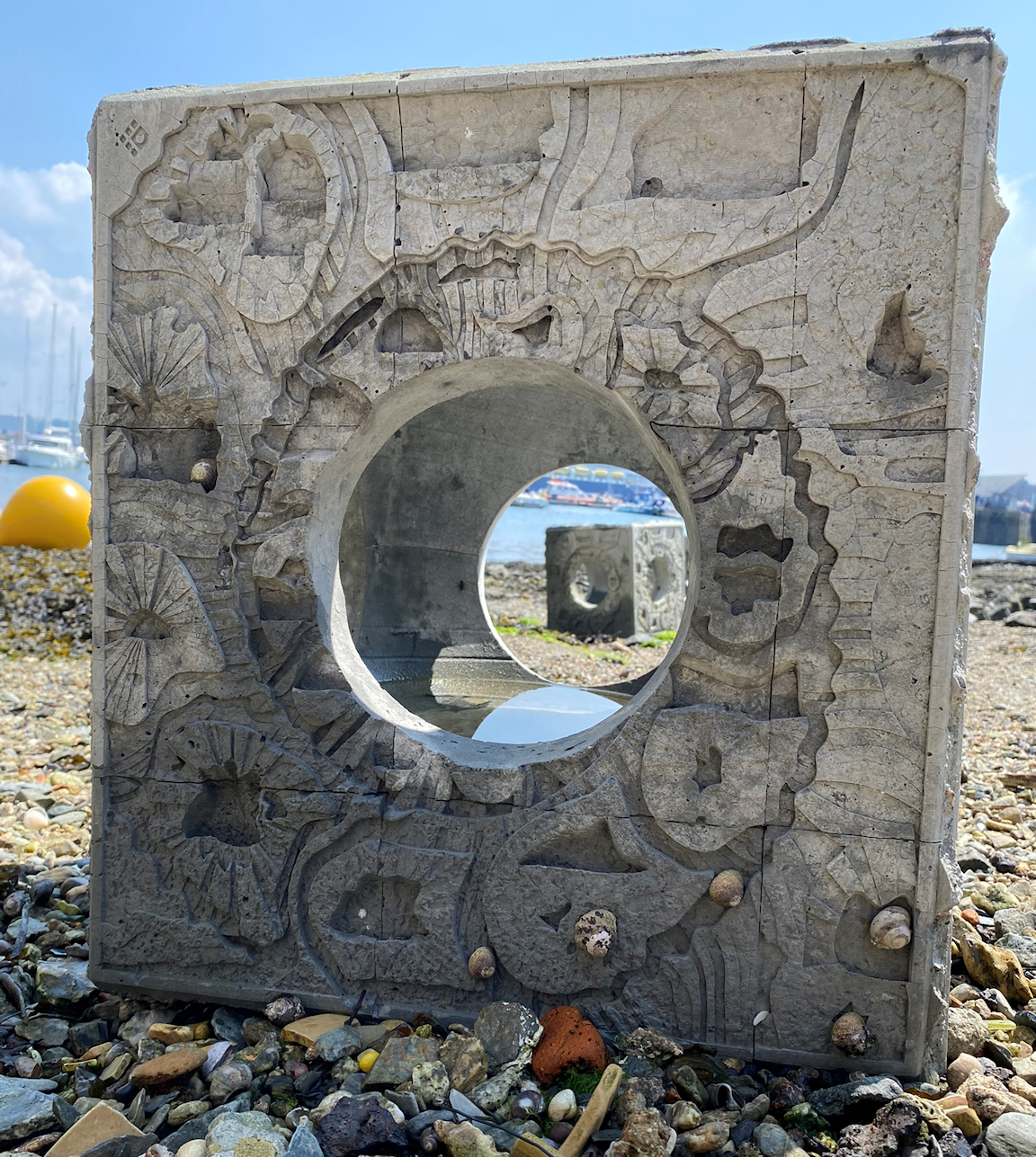
The 14 cubes installed on May 15 will provide a habitat for a wide variety of marine species, enhance biodiversity in harbor waters and engage the community on environmental impact and floating offshore wind developments.
The Gwynt Glas project team's aim is to maximize benefits where possible and align with the purpose of these biodiversity enhancing Reef Cubes. The design provides living spaces for fish, crabs, and lobsters, while the porous surface allows marine plants to flourish.
Mark Hazelton, Gwynt Glas Project Director said, "This initiative aligns perfectly with our mission to drive sustainable innovation and maximize local benefits."
Reef Cubes are designed to regenerate fragile marine ecosystems. By accelerating reef creation and repairing ecosystems, it is possible to protect vital offshore installations and promote marine biodiversity. They are made from recycled aggregate and sand, a by-product of the quarrying industry.
Vicki Spooner, Environment Manager at Falmouth Harbor said, "We are delighted to be installing Reef Cubes in our harbor. As their custodian, the health and prosperity of our local waters and their users is of paramount importance.
"We plan to work with Exeter University to monitor the impact of our new Reef Cubes and encourage the local community to witness the way these structures enhance our environment by attracting sea life and plant growth over the coming months and years."
Rachel Lopata, Co-Founder of Sea-Changers, a national marine conservation charity, supporting local charity Our Only World, commented, "This project, funded through Sea-Changers and managed locally by Our Only World was made possible through the partnership with Gwynt Glas Floating Offshore Wind Farm."
As part of a commitment to raising awareness, the Gwynt Glas project team is also engaging with local schools to educate students about the importance of the marine environment, biodiversity, and renewable energy.
"By inspiring the next generation, we hope to foster a deep appreciation for our oceans and encourage future leaders to prioritize preserving them," Hazelton said.

